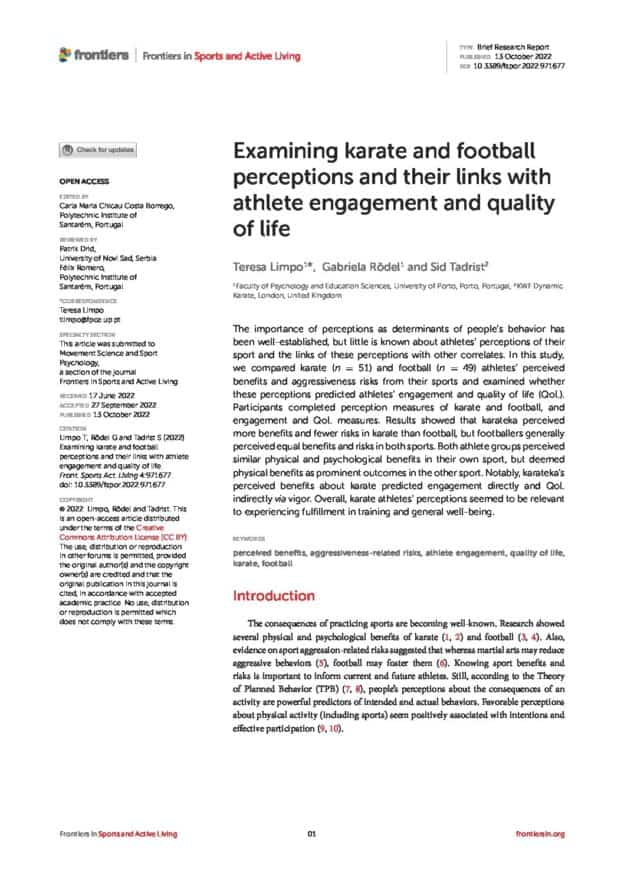Abstract
The importance of perceptions as determinants of people’s behavior has been well-established, but little is known about athletes’ perceptions of their sport and the links of these perceptions with other correlates.
In this study, we compared karate (n = 51) and football (n = 49) athletes’ perceived benefits and aggressiveness risks from their sports and examined whether these perceptions predicted athletes’ engagement and quality of life (QoL). Participants completed perception measures of karate and football, and engagement and QoL measures.
Results showed that karateka perceived more benefits and fewer risks in karate than football, but footballers generally perceived equal benefits and risks in both sports. Both athlete groups perceived similar physical and psychological benefits in their own sport, but deemed physical benefits as prominent outcomes in the other sport. Notably, karateka’s perceived benefits about karate predicted engagement directly and QoL indirectly via vigor.
Overall, karate athletes’ perceptions seemed to be relevant to experiencing fulfilment in training and general well-being.



Responses